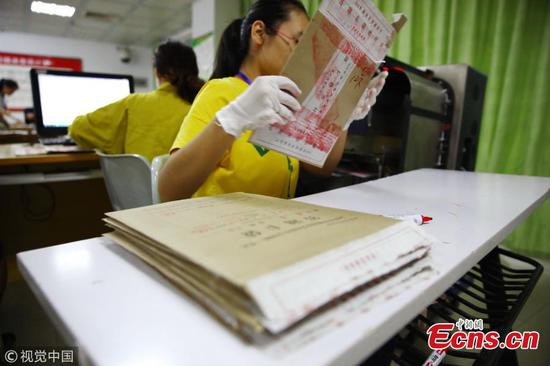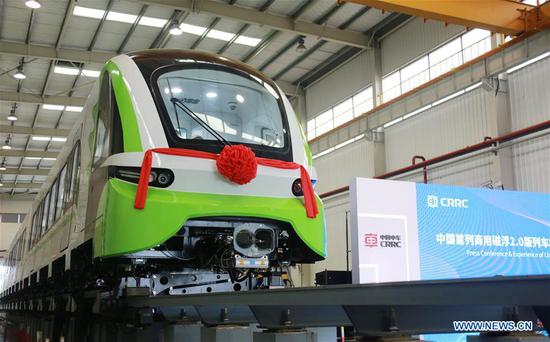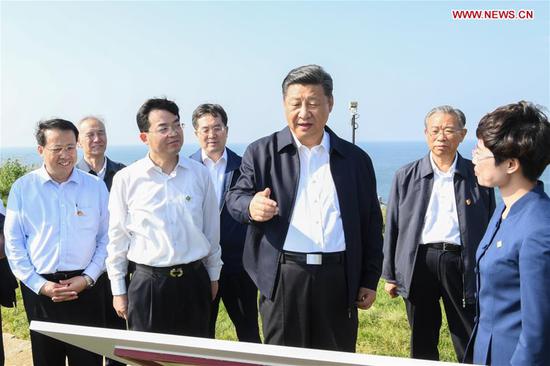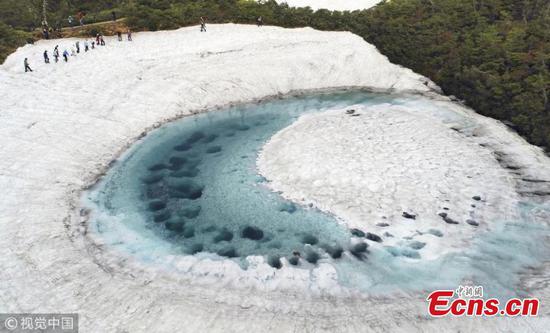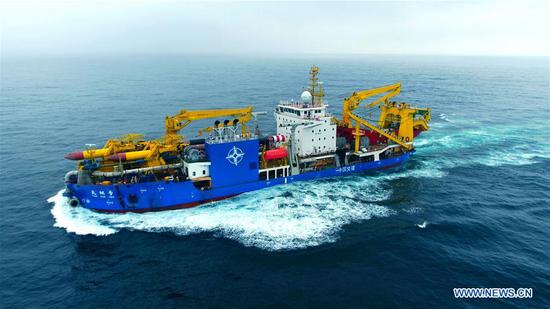Gov't may move cautiously over energy-security concerns: experts
Construction of pipelines to carry natural gas and oil in China is set to increase significantly over the next few years, but that doesn't mean there's a necessity to merge the current pipeline businesses of the nation's three oil giants, energy experts said.
Bloomberg reported on Monday that Chinese regulators aim to announce a decision before winter to combine oil and gas pipeline assets owned by three State-run energy giants, worth as much as 500 billion yuan ($78 billion), under a new national operator, citing anonymous sources familiar with the matter.
The national pipeline company would be provisionally named China Pipelines Corp, into which both State-owned and private funds will inject capital sufficient to lower the combined stake held by the three oil majors - PetroChina, Sinopec and China National Offshore Oil Corp (CNOOC) - to about 50 percent, said Bloomberg, citing sources.
A news representative of PetroChina, the listed arm of China National Petroleum Corp, told the Global Times Wednesday he had not heard about the news and the company had no information to disclose at present.
Sinopec and CNOOC told the Global Times they didn't have any information to disclose.
"Discussion and media reports about a pipeline assets merger began four or five years ago amid speculation on the direction of reform, but we don't have any confirmation from the three oil giants or related regulators at the moment," said Lin Boqiang, director of the China Center for Energy Economics Research at Xiamen University.
There have even been bold suggestions that the three oil majors would become one, Lin said. "But so far that's just talk. In the real world, our government tends to hold a cautious attitude toward mergers in the oil and gas field since the sector is key to the nation's security," he added.
Most of the nation's pipeline networks are operated by the three oil majors, with PetroChina having the largest share, Liu Guangbin, an analyst at sci99.com, a bulk commodity information website, told the Global Times on Wednesday.
More than half of PetroChina's pipelines are for gas transportation. The company's pipeline network increased from 32,801 kilometers in 2010 to 51,315 kilometers in 2017, data from industry website statista.com showed.
China aims to add more than 100,000 kilometers of pipeline network during the periods of the 13th Five-Year Plan (2016-20) and the 14th Five-Year Plan (2021-25), Sun Quanjun, general manager of China Petroleum Pipeline Engineering Co, said Tuesday at an industry conference in Langfang, North China's Hebei Province, according to Economic Information Daily.
"China's pipeline construction is set to surge over the next few years as it is adjusting its energy structure from relying on coal to clean-energy sources," Lin noted.
China's pipeline network is only one-eighth the size of the network in the US, which has rich oil and gas resources and a smaller population, said Liu.
If an independent national pipeline company was established, it would help create a fair environment especially for third-party gas producers, which would have easier access to the pipeline network. This in turn would promote a market-driven gas sector in China, according to Lin.
Coordinated planning can prevent overlapping infrastructure construction, he added.
The new company may find it challenging to ensure gas supplies using its own dispatch system, since each of the three oil giants has its own system and gas sources, Liu warned














